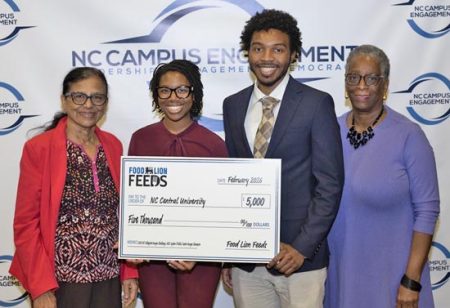Project NAF: Introducing Advocacy and Information through Mentoring
 |
| Belinda Grant, Executive Director of NAF. Photo: Urban News |
Staff reports
These goals are addressed through case management, the provision of supportive services, access to important health care treatment, doctor and well child medical appointments, bi-monthly skill-building meetings, use of community resources, and continuous collaboration to reduce racial disparities in maternal and infant care.
Project NAF provides women’s wellness support, well child visits, and access to appropriate immunizations. The program also focuses on providing community-wide education on the problems of minority infant mortality, the devastating affect of inadequate folic acid, the need for pre-conception and inter-conception care, and the benefits of breastfeeding.
In the past, program participants have been served prenatally up to
eighteen months postpartum. Over the next three years, Project NAF will
serve program participants and their children prenatally and up to two
years postpartum (interconception period). A small percentage of program
participants may enter the program during the 60-day postpartum period.
Another program component, health and wellness education, will cover
topics of breastfeeding initiation and maintenance up to at least six
weeks; eliminating use and exposure to tobacco; safe sleep; folic acid
consumption; reproductive life planning; and healthy weight and
exercise. Male partners are invited to participate in all relevant
sessions.
Project NAF surveys the needs and wants of participants served, current
and former, on a regular basis. These community-based surveys inform the
provision of services and provide guidance for program evaluation and
modification.
During the fall of 2009, participants met with staff and talked about
their experience with the Project NAF Program, and identified and helped
staff to develop solutions to their specific needs. They identified the
need to have assistance and support from a wide range of community role
models and to have help in developing ways to alleviate a perceived
high level of personal stress; stress coming from fiscal, child-rearing,
physical, and mental health; and life challenges. Project staff then
convened a luncheon for Buncombe County African American community
leaders and lay persons on November 7, 2009.
 |
| Participants in the NAF Program. Photo: MZCD |
Luncheon attendees were introduced to the concept of mentoring and asked
if they would be interested in participating. The response was
overwhelming: those present were eager to participate, making such
comments as “This is an opportunity for me to give back what has been
given to me”; “[Let me] learn what I can do to help and gain ideas that
will help in my own family”; “I want to do this because I was once where
these women are now and I really didn’t have anyone to talk to.”
As a result of this input, a new component was developed: program
participants will also receive additional support and assistance through
the development of a mentoring network from African American community
leaders. The mentoring component, AIM (Advocacy & Information
through Mentoring) will start during the first year of the grant period
as a pilot project involving eight program participants.
The project will increase program participation in years two and three
of the grant period. Mentors will provide a much needed extension of the
project staff and an additional viewpoint and role model, coach, and
cheerleader. Program participants who request or are in need of
additional support services will be referred to Dr. Calvin Kelly, PhD.
Someone has said that there is not a single book on earth that is
completely understood by just one person. Every one of us comes to the
printed page with prior knowledge and experiences, with different
viewpoints and biases, with different insights and blind spots. Though
we can “comprehend” text the first time we read it, deeper comprehension
is more likely to occur when we discuss our readings with others.
(Kelly Gallagher: Deeper Reading: Comprehending Challenging Texts).
The Mount Zion Community Devlopment office is located at 47 Eagle Street
in downtown Asheville, NC. For more information, contact Belinda K.
Grant or Shari Smith at (828) 225-8155, or by email at [email protected].
Visit the website at www.mtzionasheville.org.
Project NAF extends heartfelt thanks to The Department of Health &
Human Service’s Healthy Beginnings & Office of Minority Health &
Health Disparities, and Buncombe County for funding for the Project NAF
Program.








